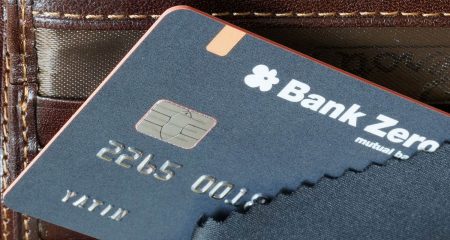
Bank Zero account and transaction fees will remain exactly the same next year, meaning they have been unchanged since the mutual bank went into beta last year.
The bank famously has zero monthly fees and also charges no fees for electronic payments, debit orders, card swipes and the purchasing of prepaid airtime, data or electricity. It was the first bank in the country to not charge for EFTs (electronic funds transfers) and debit orders.
The bank has also announced that it is now fully open for business.
Chairman Michael Jordaan says its start has been “incredibly smooth” – it required potential customers to join a waiting list to ensure it could deliver a quality onboarding experience.
This was necessitated by it having had to launch the bank with a team all working from home. Development of features on the iOS app also lagged that of the Android version slightly, with both apps available to customers on an invite-only basis. The app is now available in the App Store and in the Google Play Store.
CEO of Bank Zero Yatin Narsai says: “What is new for customers from now onwards is the adding of relationships (like friends, business associates and authorisers) where they can then immediately download the app, register and be part of that specific community – be it a business, sport club, project or a savings club. This brings digital financial connectedness to all.” These users need not be customers.
‘Pleasantly surprised’
One of the central propositions of the bank is that the functionality and fee structure are the same for consumers and businesses. It is clearly targeting the small business space and believes it to be a “huge” opportunity.
Narsai is “pleasantly surprised by the higher-than-expected number of businesses registering during the closed roll-out”, mostly private companies (Pty Ltds), followed by CCs and then sole proprietors.
Jordaan says: “We’ve already seen significant deposits flowing into Bank Zero so early in its life cycle.” He adds that since its public debut in August, the bank has experienced excellent take-up and growth in card transactions. Most popular is e-commerce, suggesting it has attracted a number of younger, tech-savvy customers.
The bank says the purchasing of prepaid items is increasing at a fast pace, exceeding all of its forecasts. The fact that these transactions attract no fees certainly helps.

Bank Zero’s fees for where it is not in control of the entire transaction, such as withdrawing cash at Shoprite or Checkers tills, at ATMs or sending money to non-Bank Zero customers, are described by the bank as “third-party costs that are passed on to you”.
These compare favourably with other low-cost propositions at other banks. However, an obvious comparison is with Capitec, which only charges R1.60 when withdrawing cash at a Shoprite/Checkers/Pick n Pay/Boxer till.
That Capitec has managed to drive this cost lower is testament to the size and purchasing power of its base of customers who would typically get cash at a till point.
Podcast: Bank Zero’s Lezanne Human on disrupting banking in South Africa
Bank Zero charges a so-called “nuisance fee” of R2 when a transaction is declined for insufficient funds, or exceeding card limits, for three incorrect PINs, or if a new card is used before activating it (or old deactivated card is used).
The bank says it only needs 100 000 customers to break even, but that its expectation is that it “will end up bringing relief to millions”.
- This article was originally published by Moneyweb and is used by TechCentral with permission




